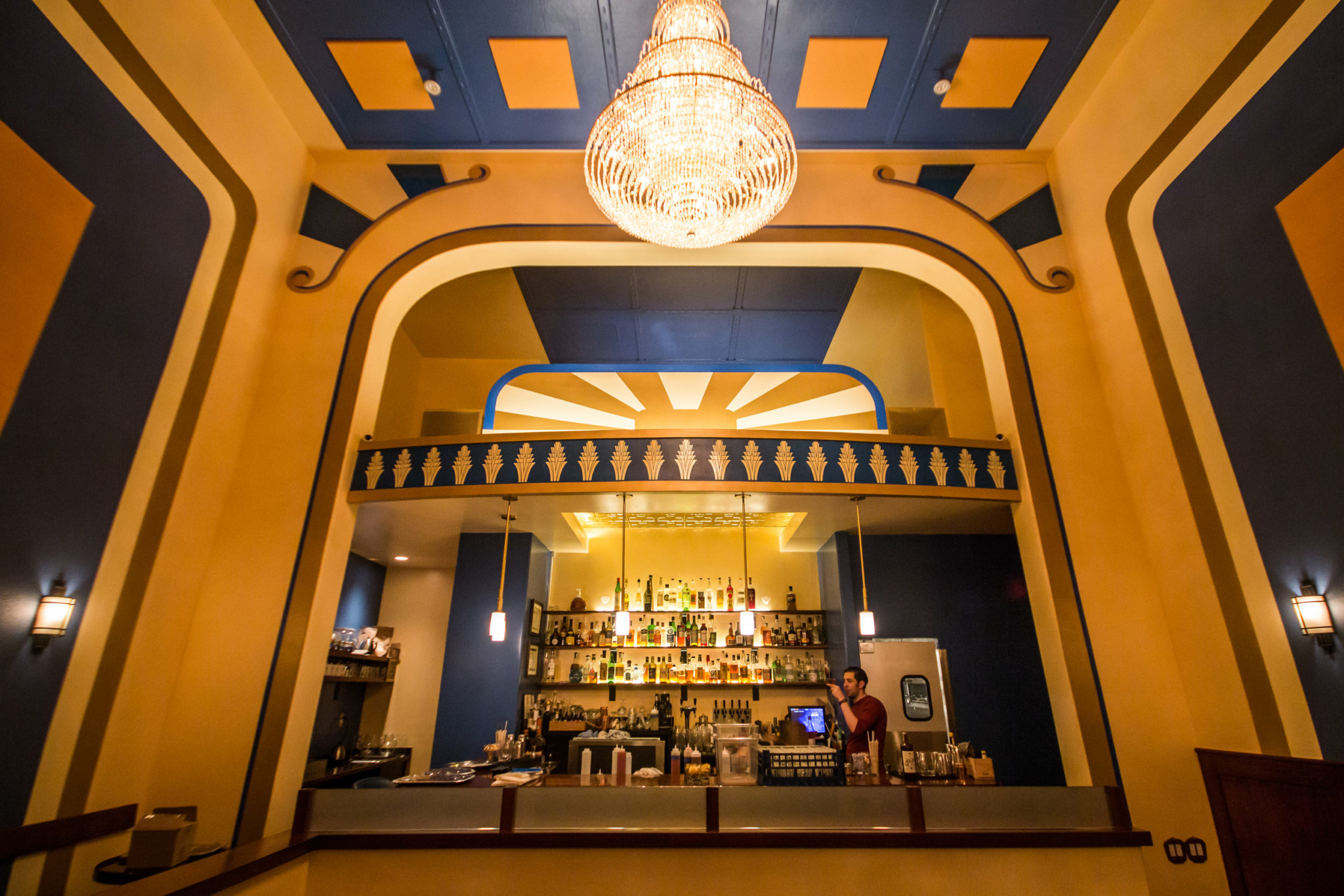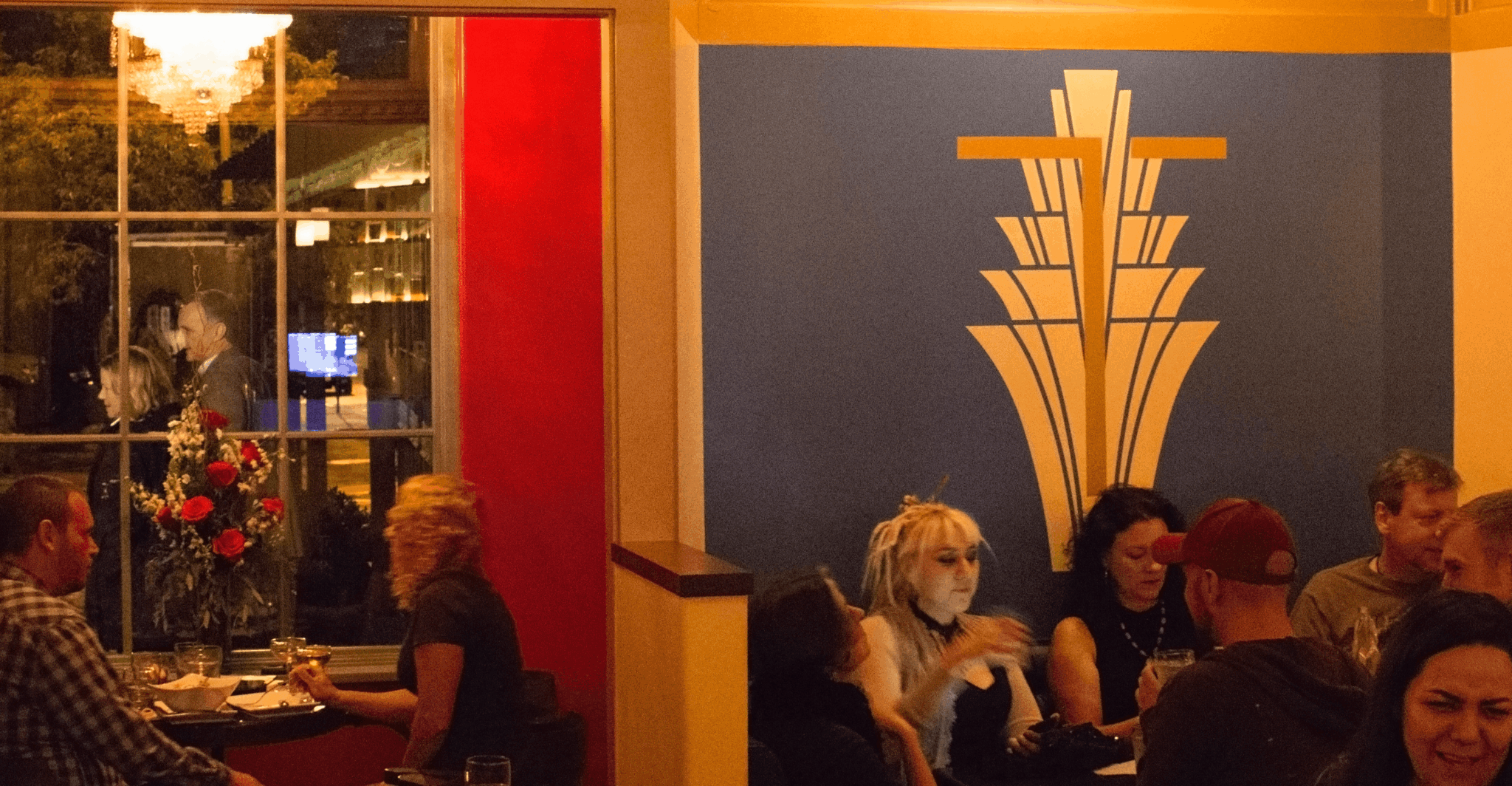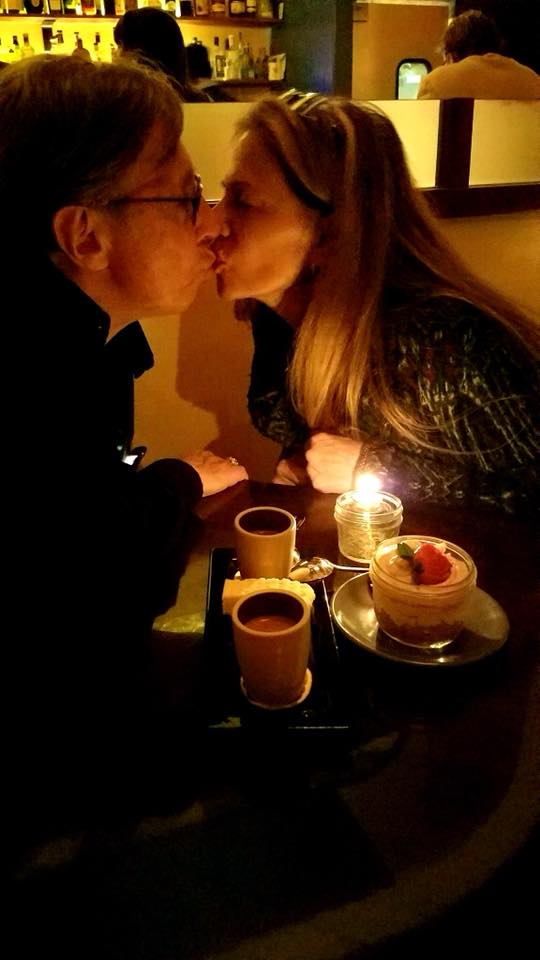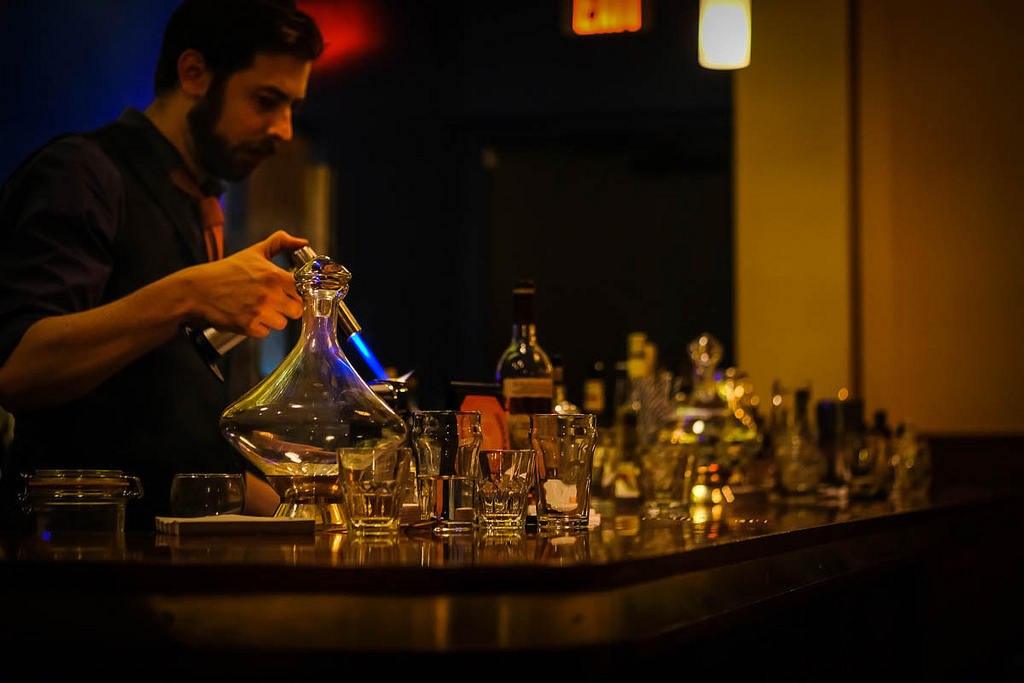We’re excited to introduce you to the always interesting and insightful Winston Greene. We hope you’ll enjoy our conversation with Winston below.
Hi Winston, thanks for joining us today. Alright, so you had your idea and then what happened? Can you walk us through the story of how you went from just an idea to executing on the idea
Over ten years ago, in my last year as a Beverage Director, I started daydreaming about what a business would be like if I owned it. What my philosophies would be. How i would treat someone working the job i was in. These fantasies turned into sketches of the interior and mock menus. I could see it in my mind. The smell of the fresh citrus as we juiced and the sound of young lovers whispering in our candle lit corners. It became all consuming. Something so visceral that it turned from dream into premonition. A future so looming it was echoing back in time. One day i decided, enough was enough, it was time to do the thing i had been talking about for years. I quit my job and started to make the thing in my head a reality. Downtown there was an abandoned restaurant. In it’s heyday, it was a well known all night diner. Famous for bitter coffee and snarky servers, it was a pilgrimage for the lost drunken 3AM souls who, stumbling from the bars, desperately sought hot food and one more destination before the night became morning. I would be lying if i said i had not on occasion been one of those lost travelers. When it closed down, no one could make the location work. When i found it, it was 2 years fallow. 22 foot walls crumbling from years of grease, water damage, neglect and time. I negotiated a lease and set out to turn this ruin in something of service. I brought a close friend into the space before we began work and walked him through every angle. Where we would put each table, where we’d run water lines, the paint and light hues. He looked at me with concern and said “sorry buddy, i just don’t see it”
First Lesson Learned: Just because you see your vision clearly, doesn’t mean anyone else does.
If a close friend couldn’t see it, you better believe the bank and contractors couldn’t either. I could talk all day about the taste of cutting edge cocktails and art deco bar stools but realized quickly that language wasn’t going to tell the story i needed to make it a reality.
The first step was easy. Take the reams and reams of sketches, photos, doodles, and design documents and turn them into floor plans. I spent day and night with an architect trying to rip out the thing in my head and plaster it into a technical design document. Turning abstract colors into PANA codes and wooden curves into millimeters and inches. I tired at no detail, thinking the more i put down the clearer it would be. When the document was finally down and printed i thought it would serve as an irrefutable gospel, reproach from all uncertainty. Which of course was not how a single people appreciated it. Least of all the bank.
I needed to secure more financing and was very hesitant to open the project to investors. I thought a bid and priced out set of plans would be met with a clear response.
“This project will cost “X dollars”. We would like “X+Y dollars back” by “Z date”. The best luck with your endeavors!”
Of course this is not how banks look at investments. They were examining the why’s. Why does this material cost so much? Why would you put so much of our money into someone else’s building? Why are you going to succeed where that last person here failed?
I took it personally. I could see the business, why couldn’t they? I had never looked at a project of this scale like a money person. I started working to understand their side of the conversation. They were professionally detached. Not that they didn’t care about my vision, but because they couldn’t use my passion as an argument to make a decision. I had to learn how to distill the critical information out of the big picture and present it as something digestible. I started leaning to speak in proforma and executables. I assuaged risk by showing strategies for management, not speculation on earnings. I learned to describe my vision as a tale of numbers.
Once i secured funding i had to hire a contractor. Suddenly i realized that although i had been on construction sites and build out teams for new projects, i didn’t know how to talk about what i wanted to a superintendent and sub contractors to ensure things were down just right. It’s easy to say that what’s on the plans is what’s going to get built but that simply isn’t the reality. I spent my days on the construction site going over plans and giving out instructions and my nights studying electrical installation, plumbing rough ins, plaster shimming, and inspection requirements. I watched as the plans became studs and sheetrock.
This continued over nine months. I started to learn to speak in the language of whatever i needed to accomplish. I was the rosetta stone for the business. Translating from one group to the other what each party needed to accomplish and in what order.
Second Lesson Learned: When you own a business, you are the center of that business.
I learned to represent my interests by the standards of what the business needed and in the language of the challenge. I learned that when something needs to get done, you deal with the issue on its terms. If you don’t know an answer, you go and find it. Become educated on a thousand different subjects because at the end of the day, if you don’t know, then you can’t advocate for something being done the way it needs to be.
While the more tangible elements were coming together i had to begin ground swell of the business as an idea in the minds of locals. Word of mouth at social events, attending fundraisers, and local functions. Radio and newspaper interviews. I because an ambassador of my brand. I couldn’t enter a room without fielding a hundred questions about the build out, the challenges of the space, the services we’d offer, who we’d hire, when we’d open. It became a personal game of how many different ways could i answer the same question over and over and over again. The closer to opening we’d get, the less of an individual i became. I went from a semi well know local to a living avatar of an idea. People would speak to me like a had no past before the project. I was simply a four limbed embodiment of a business about to open its doors. Like Willy Wonka before he opened the gates. I assumed that this would fade once we opened and the hype died down and i would return to an obscure figure who happened to own a shop.
Third Lesson Learned: If you own a business; you will become indistinguishable from it.
People still think of me as my business. People ask me how business is before they ask if im well or my family is healthy or virtually anything else. I am not resentful of it. I know they are asking to be kind and polite and show interest. I did not know that ownership was a symbiotic relationship. It is something i have learned to embrace and see it as part of the process of taking a project into execution. That to successfully bring forth from an idea into reality you must embody it. Become its advocate and learn to speak of it in a myriad of technical ways. If you do this well enough, it becomes a part of you. People see that, and they start treating the two of you as one.
To take a project from something perfect in your head and make it into something tangible changes you. You must become its advocate and protector. Be willing to shift and change and abandon the ideal for the real. It requires you to grow and because the concept is something which came from within you, it has to change as you do.
Awesome – so before we get into the rest of our questions, can you briefly introduce yourself to our readers.
I am a twenty plus year veteran of my industry. I started in my teens working at the most entry level positions of bars and restaurants. My career took me bartending across the country in everything from nightclubs and after hours bars to James Beard bar programs and Four Diamond restaurants and hotels. By the time i became a corporate beverage director, i had served in practically every role that goes into a F&B organization. I tried to use my experience to elevate the people who worked under me. Being mentor over task master. I personally believe the art of delegation is not asking someone who works under you to perform any task you would not be willing to do yourself. It was very important to me that this philosophy followed me into my business.
In 2016 i stared a craft cocktail bar called Tonic, a beverage focussed establishment built on three core principles:
• To make things which were physically and mentally curative
• To make them with great care and intention
• To make things that tell stories which inspire
I’ve always felt that bars are a central part of the human experience. In the old west, a saloon was erected before the church or postoffice. In ancient norse mythology Valhalla is not a palace but a mead hall. The American revolution was headquartered not in Sam Adams home, but in the Green Dragon bar. Why? Because they are centers of the community. I take my role as the keeper of a community’s center seriously. Keeping to a standard which serves above all, the people who feel most at home in the space we’ve created.
In 2018 Architecture Digest listed us as one of the 50 most beautiful bars in the country. The design, a play on art deco and turn of the century theaters, instantly transports you away to a different time. It’s a way station which provides us the opportunity to send the guest away a little happier than they arrived. We don’t always succeed, but it is a goal with anyone who walks over our threshold.
All these ideals are great on paper but without people working for you that believe in your brand and the things it embodies, they are impossible.
When i started hiring, i coined an onboarding phrase which i still use today:
“You will never get in trouble for saying ‘i don’t know’. I might fire you for saying ‘I don’t care”
I never want the people working for me to be afraid to learn, or ask questions, or seek self improvement. I run an extremely challenging beverage program. We try to push the envelope of our drink design and the experience those drinks provide. Every seasonal menu has an overarching theme, with each drink on the menu being a story exploring the theme. Each ingredient of each drink serving as a different element of that story. It feels highfalutin but i am consistently awed when someone calls me over and starts asking me questions about the connections they see and the story being told across the menu. Some drinks are designed around deeply personal experiences and the guest is able to connect to these stories and share their own.
The purpose of a bar is to create centers of hospitality and community. Safe spaces where we celebrate friendships, morn loss, seek love, and regale those around us with, what else, but stories. Give it enough time and a bar becomes a storybook. A collection of all those tales written within it.
Our program has received national acclaim and it is in no small part to our tales and a philosophy of always trying to learn. One of the core ways we preserve this ethos is through our training program. No matter your level of experience, we start everyone at an entry level position. In our case this makes everyone a barback. We then teach technique, guest interaction, task management and lexicon of over 100 cocktails. Any graduate of our training program would be qualified for any bar position in the country and over 60 of my apprentices are now in leadership roles and running programs of their own. Tonic’s current bar manager was ranked top 50 bartenders in America when he first interviewed for a job with me. I started him like it was his first day in a bar. Three years later he is currently ranked in the top ten in the nation and still strives to improve. It is not just his talent, but an endless dedication which fuels continual excellence. This drive in him, and all those I’ve had the privilege to work with, separates us from the next beverage program. We set our goals high, telling human stories through the American craft known as cocktail, and are always aiming to be better.
How about pivoting – can you share the story of a time you’ve had to pivot?
The original model for my business was heavily predicated on creating a venue for free live music. I had a background in booking as an impresario and had a large number of connections with which to create a talent catalog focusing on jazz, blues, and folk. We used this as a heavy draw in the early days and it was hugely successful. To say COVID changed everything in my field is a bitter understatement. When we were first permitted to reopen after a mandatory 15 month closure i was desperate to restart all of our old revenue centers and amenities. I wanted to launch strong and show the community we were still here and still offering the same great product we offered before shutdown. So month one i booked a slew of shows and readied for the return of gin and jazz.
Post COVID music nights averaged a sales decrease of 30%. The clientele who came in ordered less, tipped less, argued more, walked out on checks, and chased away the clientele who came for everything else. On nights without music, all the problems disapeared. In the past 4 years we have programmed over 30 shows and every show has the same issues.
I started professionally booking bands and programing for venues in 2011 and after COVID I’ve had to completely pivot away from using live music in my business model. It simply doesn’t work. I love live music. I love having a space where live music is performed. But loving something can’t be the determinant factor of a buildness model and ultimately you have to pivot away if the model wont hold.
Are there any books, videos, essays or other resources that have significantly impacted your management and entrepreneurial thinking and philosophy?
James Hoffman is a business owner in London and a World Barista Champion. He gave an interview in 2015 about his experience owning a coffee shop and becoming a global coffee brand. There is a great video essay version of this on YouTube titled “Three Mistakes I Made Starting A Business”. When i first say this video in 2017 it resonated with me and over the years I’ve come to agree with it more and more. It has deeply changed how i run my business and when i have friends who want to start businesses of their own, i send them the video.
He illustrates three mistakes he had made and three core things he had learned from them.
1: Money – His group did not start with enough capital. Money is a resource and when you do not have enough of that resource you start using yourself and your labor to make up for that lack of resource.
2: Time – The myth of the heroic entrepreneur. That someone who believes in their business should be working 100 hours a week. But this ultimately turns the thing you’re most passionate about into something you start to resent. The problem is that you need to ask yourself “how long do you want to run a business? 5yrs, 10 yrs, 20yrs?” It’s not sustainable to push yourself that hard forever. You need to start separating your work. Distinguishing between work you’re doing ON your business rather than IN your business. If you don’t you will end up without a life, burned out, and unhappy.
3: Family – Treating everyone who works with you like family can cloud decision making. Someone might stay in a role that fails to fit them out of loyalty. You may choose to keep someone in a role they’re failing in out of loyalty. Ultimately this serves no one. Least of all the company, even if done with the best intentions.
Contact Info:
- Website: tonicsantafe.com
- Instagram: www.instagram.com/tonicsantafe/
- Facebook: www.facebook.com/TonicSantaFe




Image Credits
Sage Morris-Greene


